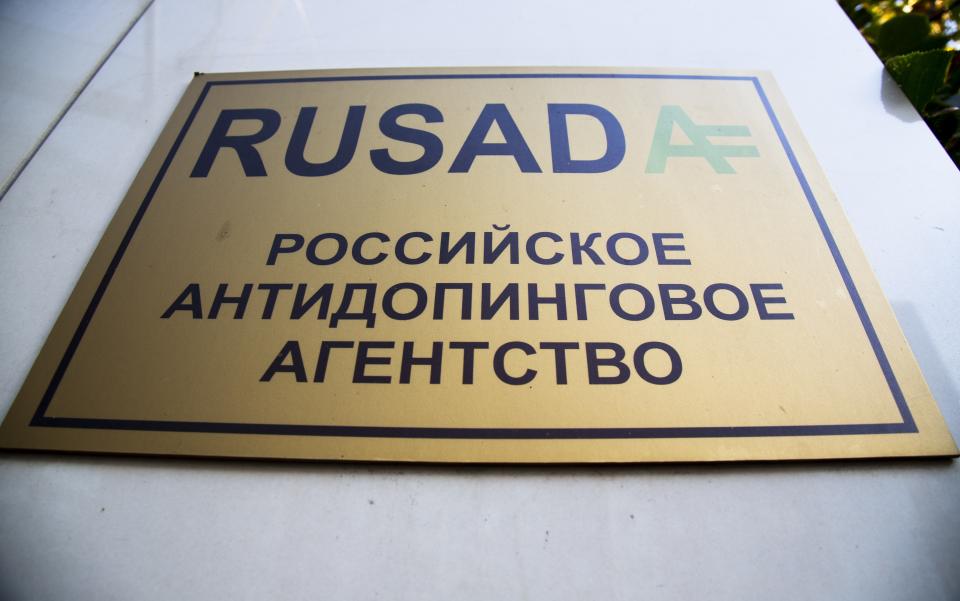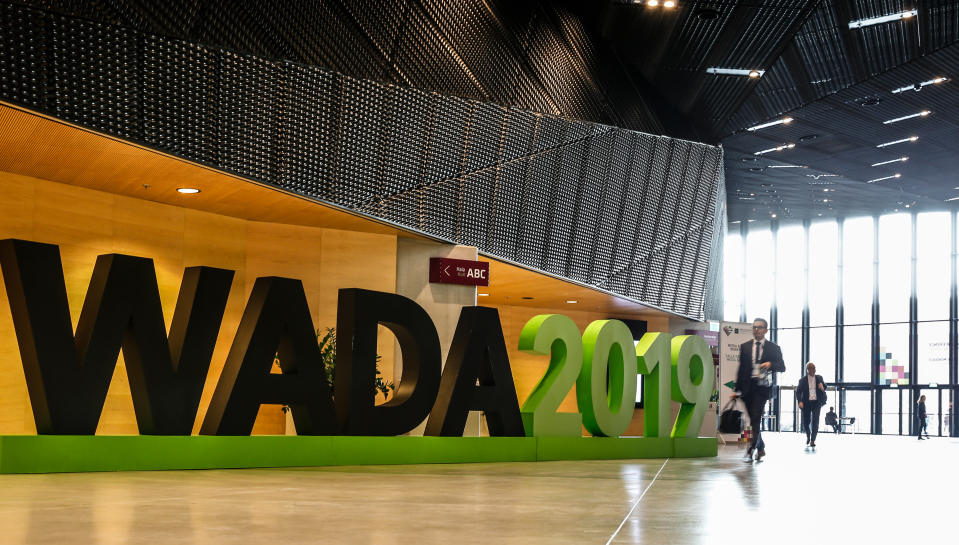Russia could face Tokyo 2020 ban following doping 'inconsistencies'

Russia could face a blanket ban from the next Olympic Games and Euro 2020 over drug-doping anomalies.
The World Anti-Doping Agency’s (WADA) executive committee is set to meet on December 9 to discuss “inconsistencies” found in Russia’s laboratory results. WADA will consider the compliance review committee’s (CRC) recommendation which is expected to be ruled “non-compliant” against RUSADA, Russia’s anti-doping agency.
The red-flagged data was obtained in January this year and stems from a period from January 2012 to August 2015. RUSADA was reinstated as compliant last September following a previous drugs ban, but now face potential new sanctions.
READ MORE: Cricket player banned after revealing team news ahead of schedule
READ MORE: Para-athlete wins world silver at the age of 60

A statement released by WADA confirmed that its CRC met on Sunday to “discuss the ongoing compliance procedure brought against RUSADA”.
Russia plan to send 400 athletes to the Tokyo Olympics next year and are also one of the countries hosting Euro 2020 games in the summer. However, this could all crumble if WADA issue Russia a blanket ban following CRC advice.
The International Olympic Committee (IOC) stated it would “not welcome a blanket ban on Russian athletes” and president Thomas Bach has said he does not want a total ban of Russians from Tokyo next year.
Head of RUSADA, Yuri Ganous told German magazine Der Spiegel that he expects the punishment to be “very tough”. He has blamed unnamed Russian officials for “irresponsible and destructive actions” and believes his organisation has been victim of “outside forces”.
“The changes to the data are so big and significant that it can't be an accident,” continued Ganous.
Vladimir Putin has confirmed that Russia is cooperating with WADA over the doping investigations.
READ MORE: Nicola Adams retires from boxing due to risk of sight loss
READ MORE: Dutch Olympic athlete jailed for drug trafficking
“Our principle is that the guilty ones must be punished as hard as possible and the innocent ones must be protected,” said Bach.
RUSADA controversy timeline:
February 2014: Russia win the 2014 Winter Olympics in Sochi with 33 medals and 13 golds.
December 2014: Doping allegations surrounding Russia surface. Former RUSADA official Vitaly Stepanov and his wife, an ex-athlete (who was banned for doping) go into hiding after submitting accusations.
November 2015: WADA declare Russia non-compliant and the International Association of Athletics Federations (IAAF) suspends the Russian track federation. This ban is still in place today.
May 2016: Russia’s doping cover ups are exposed following a published testimony from Grigory Rodchenkov, the former director of the Moscow laboratory. Rodchenkov admits to switching contaminated samples with clean ones during Sochi 2014. IOC retests old samples from previous Olympics and bans dozens of Russian athletes.
August 2016: Russia participate in Rio Olympics with a thin squad after dozens are banned due to their drug-test history. The Paralympics remove Russia entirely but IOC refuses to pull them from the Olympics.
August 2017: The IAAF vet “officially neutral” Russian athletes ahead of the world championships in London. Two silver medalists are stripped of their IAAF status during doping investigations.
READ MORE: Three-time Olympic gold medalist Pete Reed paralysed after spinal stroke
READ MORE: Brexit and the Olympics: Team GB medal haul could be damaged by no deal
December 2017: The IOC bans Russia from the 2018 Winter Olympics following evidence of cheating during Sochi 2014. Despite the ban, 168 Russians are permitted to compete as ‘Olympic Athletes from Russia’ – two fail drug tests during the games.
June-July 2018: FIFA investigate Russia ahead of the football World Cup but no sanctions are issued and Russia host the World Cup as planned.
September 2018: WADA reinstate RUSADA despite widespread protests. Russia are told to hand over data and samples that could implicate more athletes by December. RUSADA miss the deadline but turn over the data in the new year.
October 2018: Russian military intelligence officers are accused of hacking sports organisations in order to falsely incriminate other countries’ athletes.

June 2019: Lamine Diack, former IAAF president is tried over accusations for corruption. Evidence comes to light that Diack received as much as $3.5million (£2.7million) from Russian athletes to keep their doping results quiet.
September 2019: WADA states the samples handed over by the Moscow laboratory may have been tampered with. The Russian Olympic Committee expresses fears of a ban from Tokyo 2020 as RUSADA are given three weeks to explain the samples.
November 2019: WADA prepare to meet with the CRC to discuss the ruling of Russia’s fate and potential ban from Tokyo 2020 and Euro 2020.
Featured from our writers:

